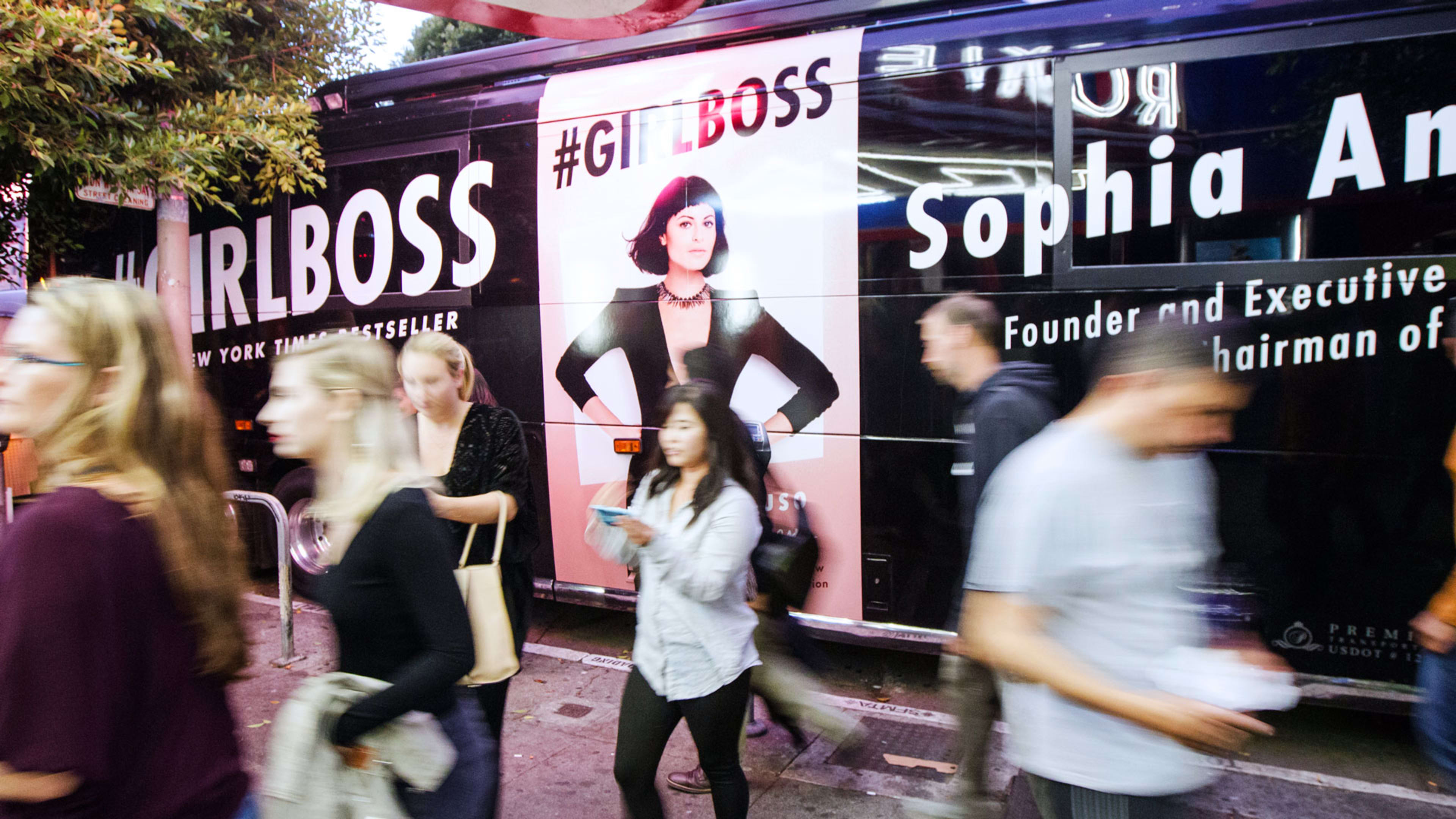If you’ve been reading about recent troubles at Thinx or last year’s shakeup at Nasty Gal, you’ve likely seen reference to a new job title: the “SHE-EO.” How is a SHE-EO different than a CEO, you might wonder? Does she have a specially bedazzled pink office filled with scented candles? Is she super in touch with her emotions? Or maybe her speech is riddled with vocal fry and up-speak? Nope, turns out a SHE-EO is actually exactly the same as a CEO, except the person holding the job just happens to be—wait for it—a woman.
Similarly, a “girlboss” is not in fact a small child who has been put in charge of a tea party, but an adult professional who hires and manages other adults. (The term was popularized by Sophia Amoruso who wrote a best-selling book and produced a Netflix series of the same name).
And in case you were wondering, a “momtrepreneur,” also is just an entrepreneur who happens to be a mother. Her business may or may not have to do with parenting or children but you’ll be hard-pressed to find her “dadtrepreneur” counterpart; likely because being a man means he doesn’t need a qualifier on his job title. He can just manage, lead, or create and let his work speak for itself.
Yes, many of these terms have been created by women and are used with the best of intentions, but they are doing women and the cause of equality more harm than good. Here’s why.
We rarely use this kind of special (and sometimes infantilizing) language for other under-represented groups, and in many cases to do so would feel like a slur. By calling out that a manager or CEO or entrepreneur happens to be a woman is to qualify that person’s accomplishments as “less than.” In that version of the world there are regular bosses and then there is a lower subset of “lady bosses.”
It’s equivalent to saying that Shonda Rhimes is successful for a woman show-runner or that Serena Williams is talented for a female athlete. These women don’t need their gender to qualify their success any more than a middle-manager needs her gender used as a preface to how she led a meeting.
No doubt Amoruso herself was being slightly tongue-in-cheek when she coined the term “girlboss,” to reclaim the types of qualifiers that often get attached to women. But that’s not how they are often used, and it doesn’t change the fact that these terms are a misguided attempt at “empowerment” at best and a way to downplay women’s accomplishments at worst.
Speaking of good intentions gone wrong, the whole idea that women need to be “empowered” in the first place is problematic. As a group, women are as complex as any other. We don’t need special help. What we do need are equal opportunities, not to mention workplaces and societies free of bias and expectations about the ways we lead, parent, speak, manage, dress, act, and what our interests are.
Holding women CEOs to a different standard, or putting them in a separate category because of their gender, does nothing to alter the reality that women still only hold fewer than 5% of CEO positions at Fortune 500 companies. Instead of giving women cutesy names, we should be addressing the underlying reason why they’re such an exception in the first place. Everyone would be better served by looking critically at the bias in hiring, funding, and promoting that keeps women’s numbers as managers, founders, and CEOs so low.
If we stop qualifying women’s successes by virtue of their gender, we can also hold their failures to the same standards as men. If you consider Uber CEO Travis Kalanick a bad boss, it’s likely because he reportedly helped foster a toxic company culture—not because he’s a man. Commending and condemning women leaders by the same standards is the definition of true equality.
Recognize your brand's excellence by applying to this year's Brands That Matters Awards before the early-rate deadline, May 3.
